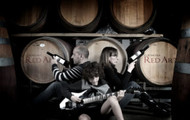In conversation with Bernie and Sam Kaeding from Rojomoma, Barossa valley, Australia
Posted by Edward Mercer on 3 Jul 2023
You have some very Old Vines in the Barossa, like others in your region, but how does this influence your wines styles? Where do you fit into the Barossa story?
Bernie: Well, this is a big story, so we’ll go back to the beginning. Sam’s ancestors came to Australia from Germany in 1837 and planted some of the first vines in the Barossa. From there they continued to have a major impact on the development and progress of the Barossa wine and viticulture industry. Apart from developing numerous vineyards in the Barossa across many branches of the family, the Gramp family also started Orlando (now owned by Pernod Ricard). Sam is the seventh generation in the Barossa, and each generation have been grape growers and / or winemakers. So, as you can see, Sam’s connection to both the history of the Barossa and the current day wine community is very strong. He was born with wine and the Barossa in his blood.
Sam: Right from the beginning of my career, I had a clear plan to have my own vineyard and wine. Winemakers like to have a huge control in how grapes should be grown and what better way than running the vineyard ourselves. Understanding and managing every facet literally from the very ground up. In 1996 I chanced upon a small vineyard on a great site that had been subdivided from a much larger vineyard, and unbelievably it had a small plot of ancient dry grown Grenache bush vines that were planted in 1886. I knew the surrounding vineyards and the high quality of wines that came from them, so I was confident this was the right vineyard for us. Over the following couple of years, we planted three shiraz blocks along with the Petit Verdot and Cabernet Sauvignon, and finally the Tempranillo in 2005. I worked for Orlando as the Chief Red Winemaker for many years until the vineyard was established and we could focus on our wine brand.
Bernie: There is a saying in the Barossa that old vines are not good because they are old, they are old because they are very good. It’s the great site and fruit grown that survives any downturn or change in wine fashion. We are so grateful that these old vines are still around. We have massive respect for these old vines, and the intense fruit characters they deliver. Our winemaking focus is to take a gentle approach to allow these characters to shine through in the wine.
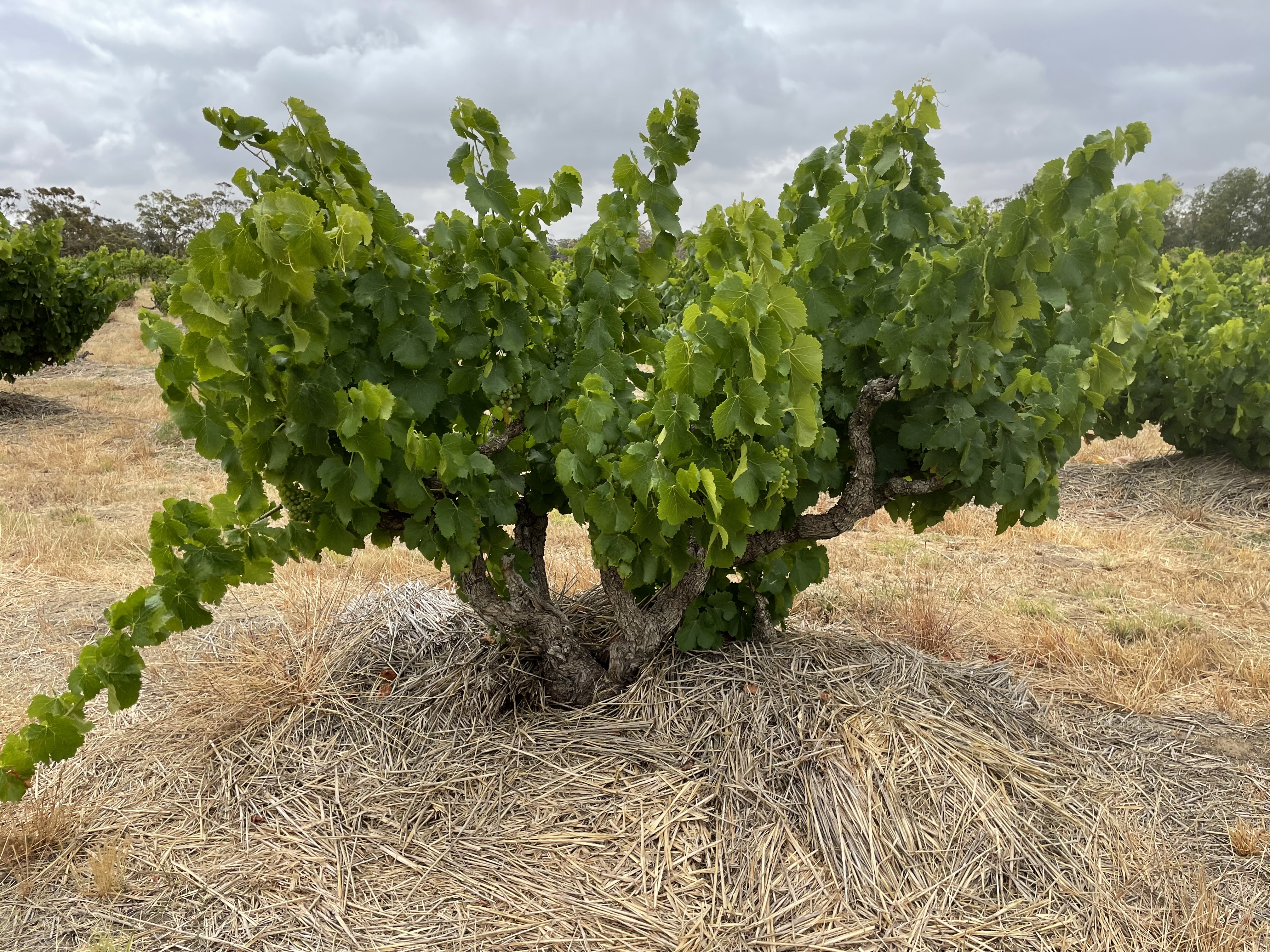
Sam: These old vines have their roots very deep in the soil, not just the first few metres of top soil but much deeper into the underlying geology. They have survived generations of extreme weather with both good and bad times, so much so that they are truly in tune and at peace with the site where they grow. They understand it. This in turn has in part lead to our Rojomoma winemaking philosophy which has been to let the site express itself and be the major character in our wines. Hand pruning, hand shoot thinning, hand picking, minimal water, very low yields, native plants and animals give a healthy ecosystem for the vines to thrive in. In the winery, wild yeast conduct the ferment. Hand plunging, basket pressing and restrained use of oak allows the fruit to shine and be the star.
Rojomoma have received some incredible wine scores, most recently in the Decanter Panel tasting. How important is this for you?
Bernie: We do what we do because we love it, and to have that recognised is very rewarding. Over the years Rojomoma has also won the Best Small Producer trophy at the Barossa Wine Show three times and a trophy for the Most Outstanding Single Vineyard Wine. I think when you put together the range of wine show awards with the Decanter scores and a listing in Matthew Jukes Best 100 Australian Wines, positive results across this range of wine judges helps to put our wine in front of people that may not see it otherwise. We tend to fly under the radar, it’s just our personalities to not put ourselves out there, so it’s good when wine professionals can do it for us!
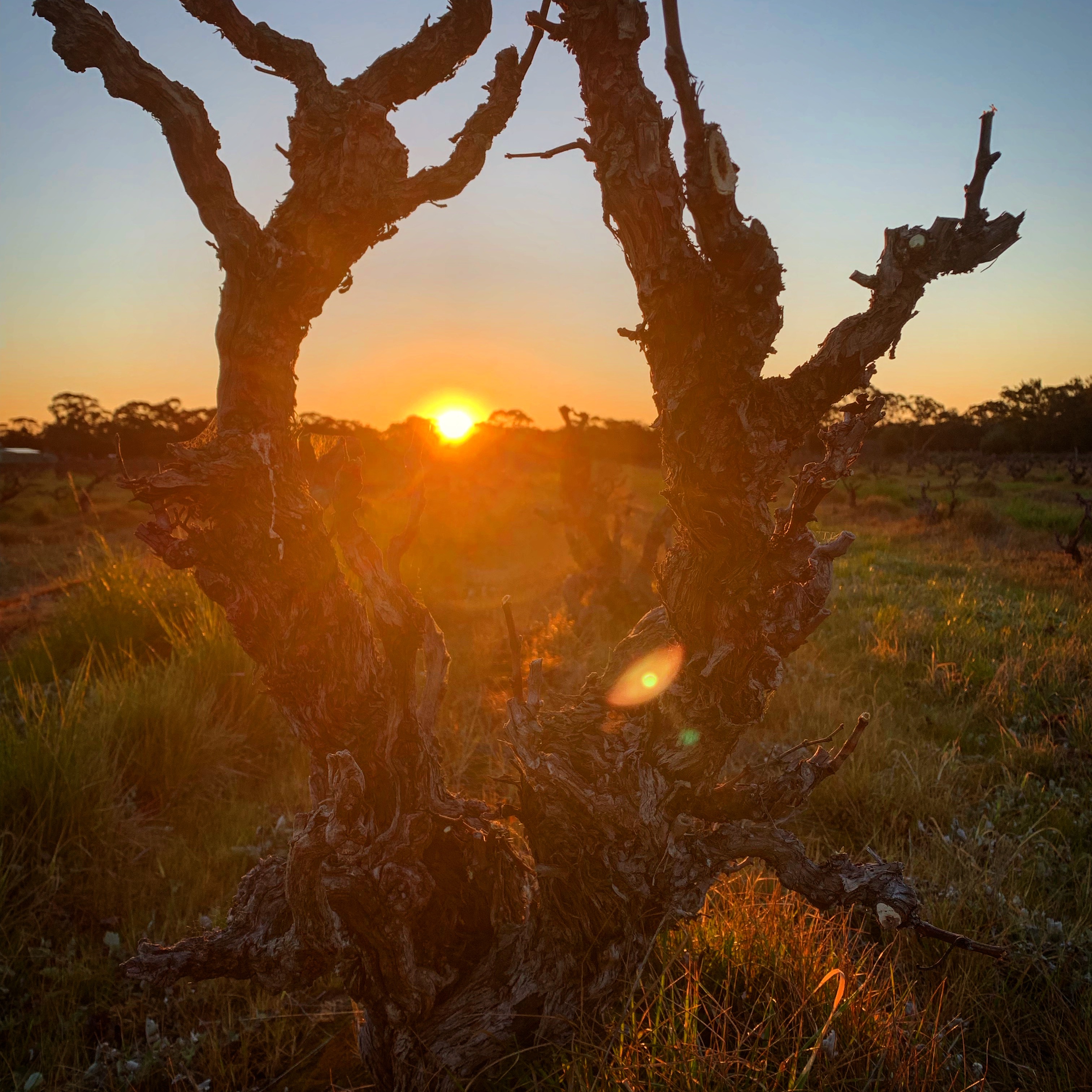
You make hugely age worthy wines, is this intentional, and if so why is this so important to you?
Sam: Yes, this is completely intentional. We love the complexity, intrigue, and beauty of a wine with maturity. To make a wine to age a long time means that is generally less approachable in its early years. That is why our current release wines have a few years of age on them, particularly our Red Art range. We try to hold back some cases of our current releases to bring back out for sale as a Cellar Release wine later. We know that most people do not have the right storage conditions, or the will power, to hold on to a wine for years, so we at Rojomoma do it for them. Enjoying a wine with many years of age is a totally different wine experience compared to drinking it as a younger wine. We want people to be able to experience that.
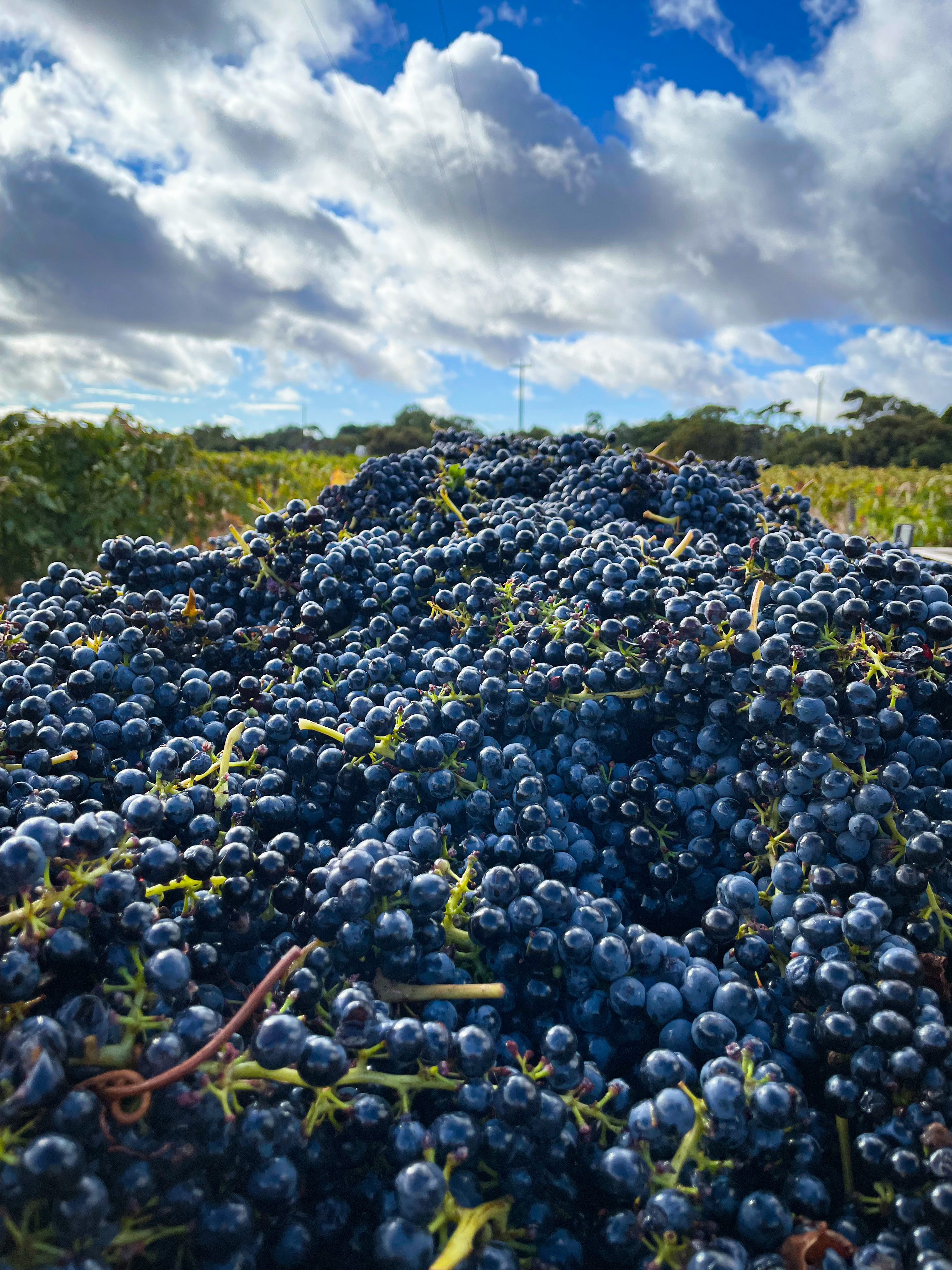
Tell me about the incredible ‘Art’ link to Rojomoma?
Bernie: I am a photographic artist and author. I have exhibited at numerous galleries in South Australia, I always have some art on display in our winery, and in 2015 I published the book “True Stories: Portraits of Barossa Winemakers”. I also design our labels and even print and hand apply the Rajs’ Pick and Amplify labels. I feel very fortunate to be able to involve my biggest passions in one business…art and wine. We both feel that creativity is integral to making great wine. It allows you to be flexible and respond to what the vintage delivers you in order to make the best wine for that year, not merely following the same recipe every year. We felt it was important to highlight this approach in our branding by incorporating our artistic influence. Our business name ‘Rojomoma’ is a word I made up. It comes from the Spanish word ‘Rojo’ meaning red, being that we specialise in red wine, and ‘MoMa’, the Museum of Modern Art in New York which is my favourite art museum.
In 2012 your Red Art Shiraz was 13.5%, how did you do this?
Sam: The growing season leading up to the 2012 vintage was a little longer than usual and we had below average vineyard yields. We also have some natural advantages in the way we grow and make our wines at Rojomoma. Spring and early summer were cooler and much more overcast than normal which delayed ripening into a cooler part of the season as we moved well into autumn. The rate of sugar ripening typically slows with the cooler weather and the shorter days giving the tannins and flavours a chance to catch up. Timely rains in late January and late February both freshened up the vines but also further reduced the sugar levels, and therefore alcohol, relative to tannin and flavour ripeness. Shiraz yields were also down by approximately 25%. Lower yielding vineyards generally achieve tannin and flavour ripeness at a lower sugar level. We usually get 2 tonne of grapes per hectare, which is very low. This is why we do not need to reach high alcohols of 15% or more, even in a normal season. One other factor that impacts the alcohol content in our wines is the use of open fermenters which allows a small amount of alcohol to breathe off during the fermentation process.
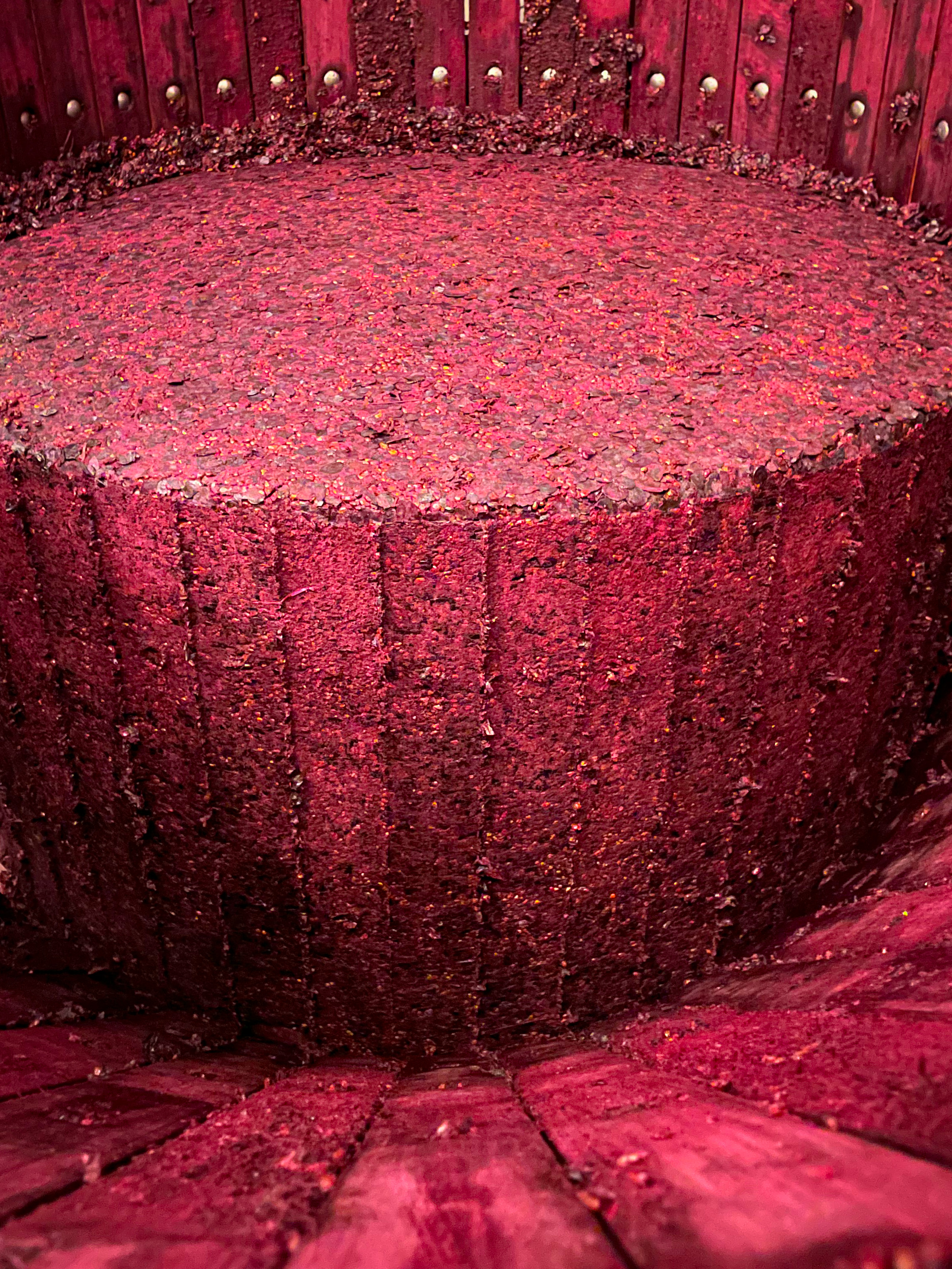
What are the big projects for Rojomoma in the next 12 months?
Bernie: We would like to achieve certification for Sustainable Wine Growing Australia. This is purely to communicate to our customers what we already do. We have practiced sustainability in both the vineyard and winery since we began, it is very important to us. We have planted hundreds of native trees on our boundary, we use drip irrigation and use minimal water, we have solar panels that supply our electricity needs in the winery and rainwater tanks that feed the Rojomoma winery. We use minimal inputs in winemaking, including letting the wild yeast spontaneously ferment the grapes, and we do not use fining agents (which makes our wine vegan friendly). Together with our organic approach to farming we are ready to go for certification, I have just been procrastinating on filling in all the paperwork!
On a more fun note, we are planning a trip back to the UK and can’t wait to share our wine at some great tasting events early in 2024.
To learn more about Rojomoma please visit their website https://rojomoma.com.au/

